Mice can be a troublesome pest in your home. Apart from creating a mess in your home, they are carriers of dangerous diseases. Believe it or not, the seemingly innocent, little rodent can create havoc in your home. A mouse problem can be a nightmare situation to be in. A lot of people don’t even realize how bad the situation is until the problem gets really out of hand.
The key to keeping mice away from your home is to understand what mice hate. By knowing what things mice dislike, it becomes easier to keep the rodent away. Mice have a very strong olfactory sense. Along with the nose, mice also have a special organ inside their nose which provides them a very strong sense of smell. Due to their sensitive sense of smell, scents can be used to deter mice from your home.
The internet is flooded with a plethora of ideas on the scents that deter mice. It may be really confusing to know what works and what does not?
Here is a list of the smells that mice really hate:
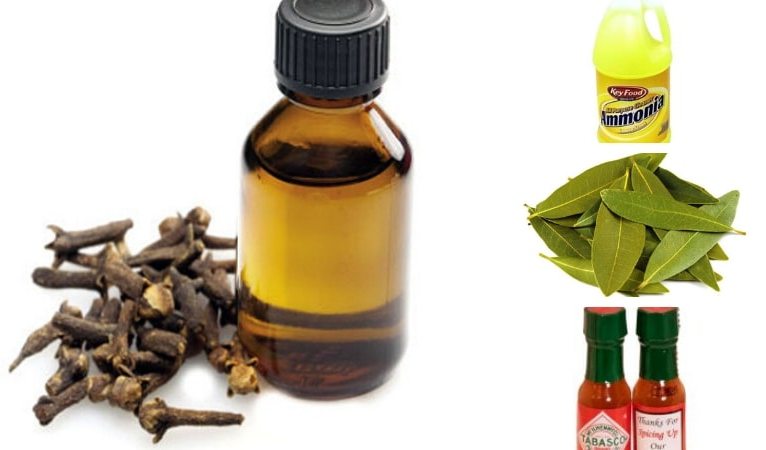
Mothballs: You may have probably seen your grandmother put mothballs in the kitchen and bathroom to keep rodents away. Using mothballs is one of the oldest tricks in the trade to keep mice from your home. Mothballs are made of a strong smelling substance called Naphthalene. Along with emitting a pungent odor, naphthalene is also quite toxic and can easily kill a mouse if ingested by it.
Mothballs are easily commercially available in stores around you. They are available in various formulations such as small marble-like balls, scented packs, and paper cases, bars, flakes, crystals, and cakes.
There are many advantages of using mothballs. Mothballs are easy to use. They can be easily placed in problem areas and are a strong deterrent to mice. Due to their small size, they can even be placed in difficult to access areas. Mothballs are freely available in departmental as well as online stores without the need for a prescription. They have a very strong odor that emits a fresh zesty smell similar to camphor.
However, there are several problems associated with using mothballs as reported by the National Pesticide Information Center. Here are some of the harmful effects of mothballs that you should consider before using them.
Firstly, mothballs emit toxic gases that may be dangerous for pets as well as humans. In case of exposure to a large quantity of naphthalene, people have complained of diarrhea, eye and nose irritation, headaches, nausea, and vomiting.
Long-Term Exposure to such harmful chemicals can also lead to kidney and liver damage. Some people have also complained of skin irritations after coming in contact with mothballs. Also, the mice may return once the effect of the mothball fragrance and its chemicals begins to wear off.
Extreme care should be taken if you have little children at home. Mothballs resemble candy pieces and kids may be tempted to eat or play with them.
Since it can be dangerous for humans, it is suggested to use mothballs outside your homes and to block entrances and preventing mice from entering homes. Researchers at the University of Florida strongly recommend using mothball products that are registered by the US Environmental Protection Agency (EPA). Not only is it illegal to use products that do not have an EPA certification, but it can pose a serious threat to young children.
Peppermint Oil: Peppermint oil emits a fresh and zesty smell that is also used as a room freshener. However, mice are known to hate the smell of peppermint oil. Keep an incense burner burning with peppermint oil in your home and keep the mice away! Peppermint oil can also be found in your daily supermarket or can be ordered online without the need for prescriptions.
The easiest way to use peppermint oil is to splash about 20 to 30 drops on a cotton ball. Place these cotton balls around your home. Please make sure to repeat the process when you notice that the fragrance of the oil seems to be fading.
An alternative way is to use an incense burner. Simply place a little peppermint oil along with water in an electric incense burner. The lovely fragrance will keep your home smelling great and will also keep the troublesome rodents away.
Peppermint oil can also be mixed with your regular floor-cleaning detergent for better results. A lot of people also put fresh peppermint leaves in decorative jars or vases and it works equally well in keeping the rodent away.
Peppermint oil will only as long as the efficacy of its fragrance exists. So, you will need to regularly keep changing the oil. Also, good quality peppermint oils will work better than cheap blended oil. Remember to look for 100% pure peppermint oil to ensure good results. Though blended oils emit a pleasing fragrance, they fail to act as a mouse deterrent.
However, it may also cause reactions to your pet cats and dogs, so it must be used with caution if you have pets.

Ammonia: Ammonia is commonly found in our homes. It is used to make glass cleaners at home. The strong smell of ammonia deters mice from entering your home. The pungent smell emitted from the ammonia solution reminds mice of predator urine, scaring them away. Placing ammonia near entry points will prevent them from entering your home. You may put household ammonia in small containers or bottle caps. Place these containers where you’ve seen mouse droppings, in cabinets, and in the kitchen. You may also use old rags soaked with ammonia to block common entry points. You may also inject an ammonia solution with the help of a syringe in small holes.
Cloves: Cloves also emanate a strong smell which most humans find pleasant and appealing. However, it is one of those scents that mice hate. As long as cloves emit their distinct fragrance, your home is sure to be free of mice menace. It is believed that crushed cloves emit a stronger aroma and may be more effective in solving your rodent issues. Many people also use clove oil instead of actual cloves. The natural woody fragrance of clove oil is a soothing fragrance for humans but it is also a scent that deters mice away. You may also dip an old rag or a cheesecloth in clove oil and place them in areas where you are experiencing mouse troubles. Organic clove oil may also be used for better results.
Bay Leaves: Bay leaves are considered to be one of the easiest and best natural methods of deterring mice. Bay leaves also have a sharp smell when crushed slightly. Simply put a few bay leaves in common areas and replace them at regular intervals. This simple home remedy is sure to keep the little monster away from your home. Bay leaves are easy to use and there is no danger to little kids or pets.
Dryer sheets: The heady smell of dryer sheets is known to keep mice from entering your homes. Dryer sheets will work as long as they continue to release their pungent fragrance. You may rub the dryer-sheet in areas frequented by mice or rub the dryer sheet near mice entry points. Though they work in the short-run, the smell of dryer sheets dries out really soon and you will find that the pest is back in your home. Good quality dryer sheets will have a more intense fragrance and will also last longer in keeping mice away. You will need to replace the dryer sheets once their scent has evaporated.
Snake-poo: One of the most bizarre things believed to cure mouse threat is placing snake-poo in your home. Mice associate the odor of snake poo with the smell of their strongest predator. Where in the world do you get snake poo? Snake poo is found in specialty pet stores and also in online stores. It can be more expensive than other natural remedies. The biggest problem of using snake-poo as a scent that keeps mice away is that it is sure to dirty your home and create a big mess. It is also hazardous for younger children and pets at home.
Cayenne pepper and pepper: Mice keep away from pungent and spicy smells. The strong peppery smell emitted from cayenne pepper will keep mice away from your home. Placing small amounts of cayenne pepper or pepper sauce close to entry points also works. Pepper should be placed with caution if you have young children or pets at home.
Tabasco-sauce and soap: A mixture of Tabasco-sauce and soapy water may also help you in preventing mice from entering your homes. This solution can be placed in small containers or bottle caps. But this method can sometimes be quite a messy way of deterring mice from your home. Similar to cayenne pepper, it may be dangerous for little kids and pets.
There are many other scents that mice hate such as—decayed onions, a solution of raw garlic and water, and cat urine that also work as mice deterrents. But their strong odor will be very difficult to remove from your home.
Powerful, pungent, and zesty scents are the natural way of keeping mice away!
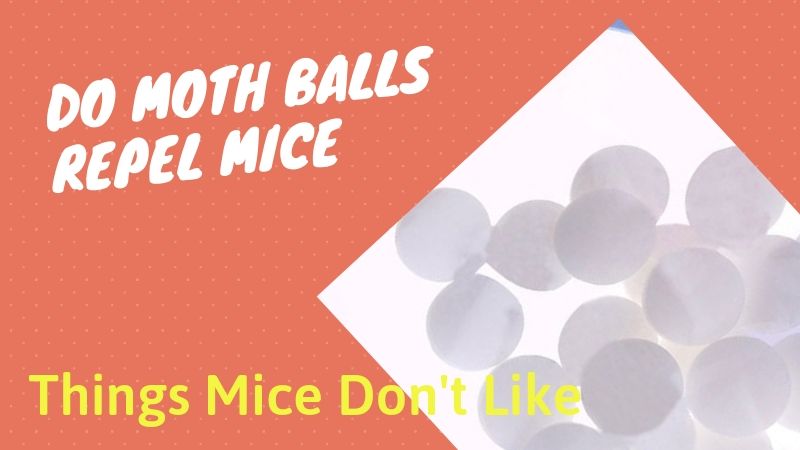
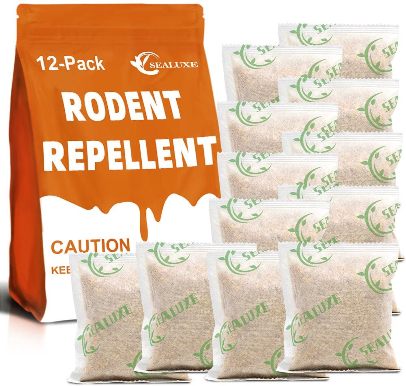

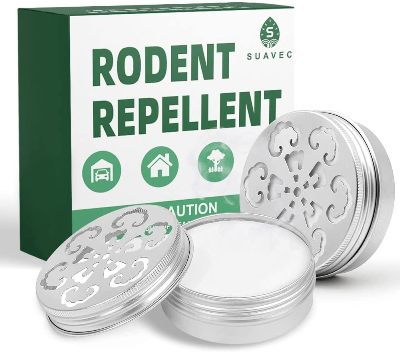
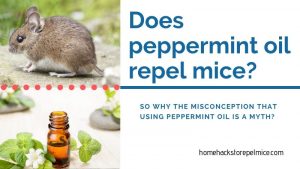


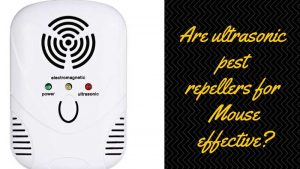
I had onion put in storage which the mice just loved, they only left the outer skin.
Dryer sheets and moth balls don’t faze them either.